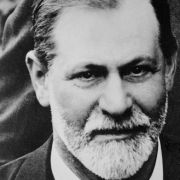Identity (original) (raw)

One of the most enduring theories of development was proposed by psychologist Erik Erikson. Erikson divided the lifecycle into eight stages that each contained a conflict, with the resolution of those conflicts leading to the development of personality. The conflict that occurs during adolescence, Erikson believed, is “identity versus role confusion.”
Adolescents grapple with so many different aspects of identity, from choosing a career path to cultivating moral and political beliefs to becoming a friend or partner. Role confusion pertains to the inability to commit to one path. Adolescents then go through a period of experimentation before committing, reconciling the pieces of their identity, and emerging into adulthood.
Identity formation is most acute during adolescence, but the process doesn’t stop after the teen years. Taking on a new role, such as becoming a parent, can make self-definition a lifelong process.
As a person grows older, the overall trend is toward identity achievement. But major life upheavals, such as divorce, retirement, or the death of a loved one, often lead people to explore and redefine their identities.